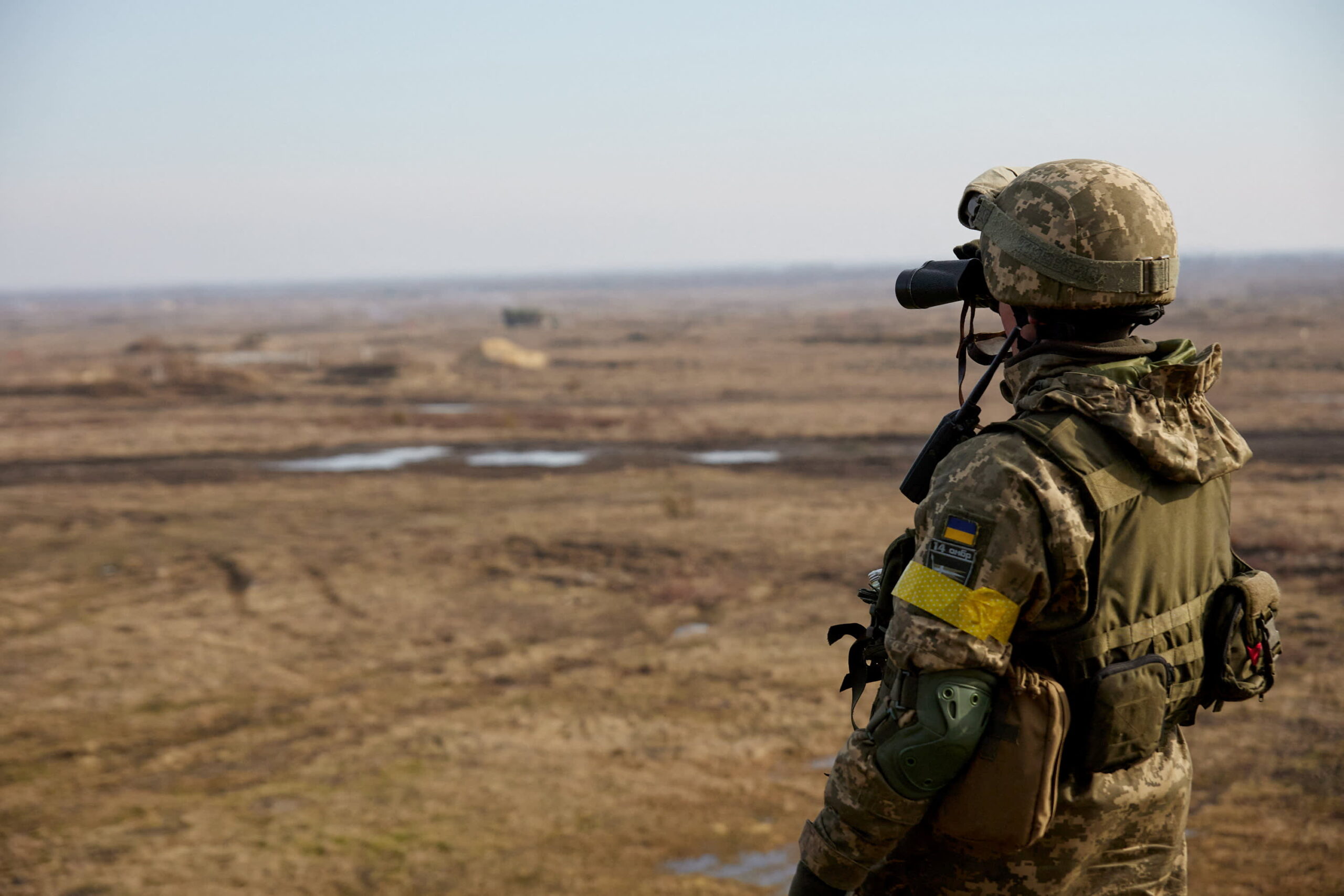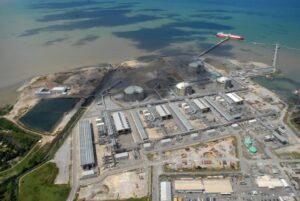
(Trinidad and Tobago Newsday, 23.Feb.2022) — War! What is it good for? Apparently it’s good for oil, gas and petrochemical prices.
For the past few weeks concerns over Russia’s aggressive stance against Ukraine have contributed in part to the daily increase in oil, gas and ammonia prices.
Foreign Affairs Minister Dr Amery Browne said checks were made and there are currently no TT citizens in the Ukraine.
But with the conflict reaching a climax and the Kremlin posting troops in two separatist territories beyond the Ukrainian border, fuelling fears that a full-on Russian invasion is under way, the prices of oil, gas and petrochemicals like ammonia are threatening to go even higher.
This could have long-term and short-term effects for the world at large and more specifically Trinidad and Tobago as an energy and petrochemical-producing economy.
While in the short term the high price of these commodities could be beneficial, once TT is able to take advantage of them, economists and energy gurus have warned that long-term disruptions could make recovering from the medical and economic crisis of covid19 all the more difficult.
Oil prices went from negative territory in the spring of 2020 to the highest they have been in about seven years, now standing at US$92.34 a barrel (WTI) and US$96.77 a barrel (Brent). Natural gas too has seen a meteoric rise in prices now standing at US$4.48 MMBtu
Both commodities spiked last month, with crude oil (WTI) reaching US$95.41 a barrel and natural gas reaching up to US$5.53 MMBtu.
Another commodity with rising prices along with oil and natural gas is ammonia prices, which now stand at more than US$1,100 per tonne.
Russia’s threat to the Ukraine and its current breaching of Ukrainian borders have been major contributors to the prices of oil and natural gas. As it is the second largest producer of natural gas behind the US, the third largest producer of crude oil behind Saudi Arabia and the US and one of the world’s largest producers of ammonia, uncertainties coming out of conflict with Ukraine and resulting sanctions against doing business with Russia have greatly contributed to the rise in prices for the commodities.
The conflict between Russia and Ukraine has already resulted in sanctions, despite Russia’s being one of the top suppliers of natural gas to Europe.
“With this latest issue with Russia, the German government has signalled that it will put a halt to the approval of the Nordstrom 2 which connects natural gas from Siberia to Germany,” said former energy minister Kevin Ramnarine.
“Russia provides Europe with 40 per cent of its gas demands. It is also one of the biggest markets for LNG. What this means is that we as a country will experience higher prices for the oil and the natural gas and ammonia that we export.
“We expect a barrage of sanctions on Russian commodities and businessmen, and what will happen out of that will be that the prices will be heading upward.”
Economist Dr Vaalmikki Arjoon added that along with the US, the UK and Japan are also set to impose sanctions on Russia.
“There is a strong possibility that oil prices could reach as high as US$130 per barrel, given that the sanctions will cause many countries to stop purchasing from Russian energy companies and buy elsewhere.”
The conflict between Russia and Ukraine is not the only contributing factor to the price of oil and natural gas. As economies reopen after protracted shutdowns caused by covid19, the OECS is struggling to meet the world’s aggressively increasing demand for these commodities.
The rise prices of oil, gas and petrochemical commodities therefore will be a good thing for countries that export, but for those who import it could be an added pressure, Ramnarine said.
“You will have these higher prices putting a lot of stress on the countries that import these commodities. Economies of the Caribbean – Barbados, Jamaica, the eastern Caribbean and so on – are heavily dependent on gasoline, diesel, fuel oil etc.
“We are also dependent on imports of these commodities. Those countries will now have to put out more US (dollars) to keep their economies going.”
The rise in crude oil prices has already affected prices at the pumps in the US. The American Automobile Association has put the current average of regular gasoline at US$3.53 a gallon, with retail prices going up to US$4.74 a gallon in California and US$3.98 in Washington.
“These high prices would also mean higher food prices. Ships run on fuel. Plants and animals need nitrogen-based fertiliser to grow. So disruptions in the ammonia supply chain will also affect food.”
Arjoon noted that shipping costs from Asia increased by over 500 per cent in the past year. Inflation in the US has risen over seven per cent, a figure which is expected to increase along with higher oil prices.
“Therefore prices locally will increase further,” Arjoon said. “This could also be compounded, given that the central banks such as the Federal Reserve are set to raise interest rates, which will also increase the cost of production and prices even further.
“Moreover, higher prices for fuel will mean the state will have to face higher expenditure from the fuel subsidy or run the risk of charging higher prices at the pump.
It will also be important to note that for TT to benefit from the higher prices it would need to produce a satisfactory supply to meet the demand.
Arjoon noted that recent reports suggest a shortfall in gas supply by BpTT over the past year and declining reservoirs may counteract gains in production from the Cassia, Matapal and Colibri fields.
“Our ability to duly take advantage of these price surges will not be as optimal as we would hope,” Arjoon noted.
Nonetheless, whatever supply TT has would benefit from both demand and price. He advised that should the revenue exceed budgeted revenues, TT will be required to put some of these funds into the Heritage Stability Fund.
With TT representing in Doha, Qatar at the GECF summit one may also worry about sanctions on Russia affecting TT’s ability to do business. However, Newsday was reliably informed that TT does not have any business in Russia despite being part of the GECF of which both Russia and Iran are members.
Still, Ramnarine said, TT has to be wary of its business partners should conflicts in Europe worsen, despite its policies allowing TT to be friends with whomever it chooses.
“We have always had adopted the policy that we are friends with everyone,” Ramnarine said. “I don’t think the US would have issue with us being members of the GECF.
“But TT has to be fully aware of how the geopolitics is playing out. Russia, China and the US all have interests in the Caribbean, to varying degrees. We have to be aware of how this geopolitical drama is playing out and use it to inform our foreign policy, which is entwined with our energy policy.”
____________________
By Ryan Hamilton-Davis

